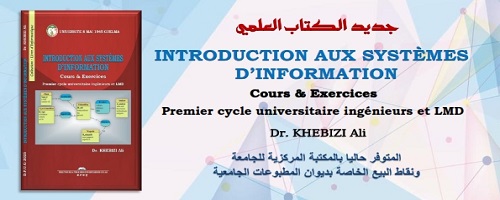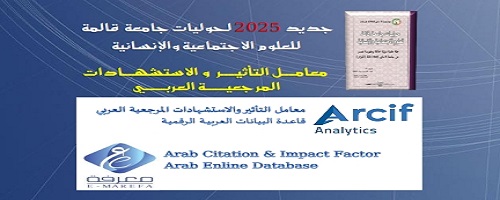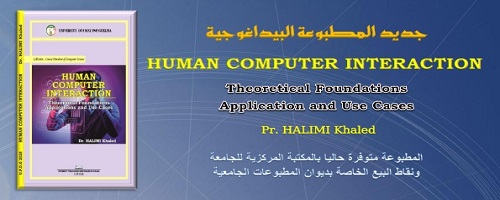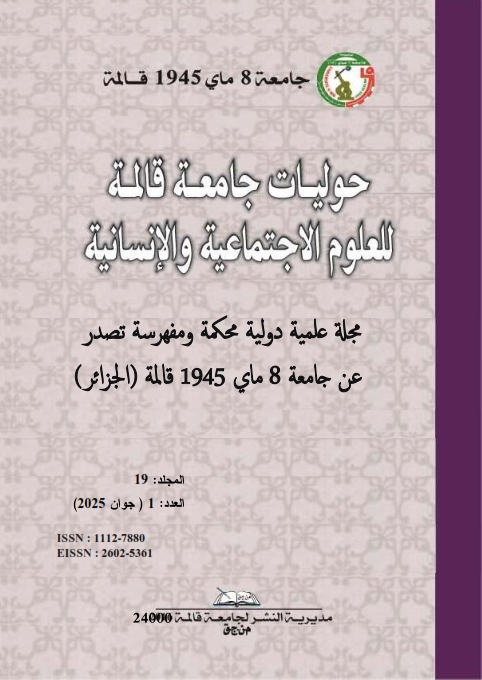أنت هنا
- الرئيسية »
- مدارج الثّورة التّحريريّة في الخطاب الشّعريّ الشّعبي (شعراء تبسة نموذجا)
أعداد المجلة
المقر الجديد لمديرية النشر :
رئاسة الجامعة سابقا
الطابق الأول
للإتصال
مديـريــة الـنشــر الجامـعي
جامعــة 8 مــاي 1945 قالمـــة
ص.ب 401 - قالمة - الجزائـــر
البريد الإلكتروني:
الهاتف : 46 60 11 037
القائمة الرئيسية




